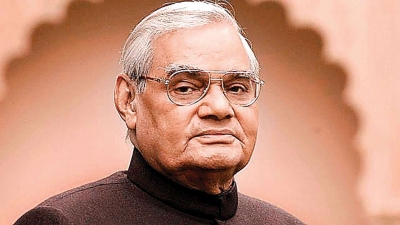
Atal Bihari Vajpayee (25 December 1924 – 16 August 2018) was an Indian statesman who served three terms as the Prime Minister of India, first for a term of 13 days in 1996, then for a period of 13 months from 1998 to 1999, followed by a full term from 1999 to 2004. A member of the Bharatiya Janata Party (BJP), he was the first Indian prime minister not of the Indian National Congress to serve a full term in office. He was also noted as a poet and a writer.
He was a member of the Indian Parliament for over five decades, having been elected ten times to the Lok Sabha, the lower house, and twice to the Rajya Sabha, the upper house. He served as the Member of Parliament for Lucknow, retiring from active politics in 2009 due to health concerns. He was among the founding members of the Bharatiya Jana Sangh (BJS), of which he was president from 1968 to 1972. The BJS merged with several other parties to form the Janata Party, which won the 1977 general election. In March 1977, Vajpayee became the Minister of External Affairs in the cabinet of Prime Minister Morarji Desai. He resigned in 1979, and the Janata alliance collapsed soon after. Former members of the BJS formed the BJP in 1980, with Vajpayee its first president.
Vajpayee’s oratorial skills won him the reputation of being the most eloquent defender of the Jana Sangh’s policies. After the death of Deendayal Upadhyaya, the leadership of the Jana Sangh passed to Vajpayee. He became the national president of the Jana Sangh in 1968, running the party along with Nanaji Deshmukh, Balraj Madhok, and L. K. Advani.
Picture Credit : Google

